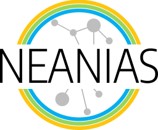Representatives of the NEANIAS Project and the Blue-Cloud Project have met in a fruitful working session. Both projects are European h2020 initiatives in the European Open Science Cloud (EOSC) context.
INAF is offering one PostDoc position at IAPS-Rome to work on the development of services derived from the modern astrophysical research, their integration on the EOSC system and their application to the main surveys of the Galactic plane such as Hi-GAL, MIPSGAL, ALMAGAL, etc, to study the star formation process in the Milky Way.
NEANIAS participated in OpenAIRE Week, held from October 12th until October 16th 2020, where a mix of internal meetings in the morning for OpenAIRE partners and public sessions consisted of external webinars in the afternoon.
Game engines are continuously evolving toolkits that assist in communicating with underlying frameworks and APIs for rendering, audio and interfacing. A game engine core functionality is its collection of libraries and user interface used to assist a developer in creating an artifact that can render and play sounds seamlessly, while handling collisions, updating physics, and processing AI and player inputs in a live and continuous looping mechanism.
The first version of the NEANIAS Space portal is now live!. You can find it at: https://thematic.dev.neanias.eu/SPACE/.
The portal is provided by the NEANIAS WP4 Space community (made up of INAF, UoP, JACOBS, ALTEC, MEEO, UNIMIB and SZTAKI). This first release has been designed and developed by Michelle Osubor of the School of Creative Technologies at University of Portsmouth for her MSc dissertation in Digital Media.
Projects like NEANIAS are meant to guide the astrophysics community in the transition toward the Open Science paradigm. By promoting Open Science practices, delivering innovative services and tools, and enriching workflows for data management, visualisation and analysis, NEANIAS will lay solid scientific and technological foundations to face the challenges of future astronomy. And that is only possible if we see the big picture first: where we are right now, and where we want to go.
Suppose you want to teach a concept to someone: a possible way, instead of trying to provide a formal definition (which can be hard to provide or ineffective to communicate), is to give examples and counterexamples. Basically, this is the approach adopted by supervised machine learning; based on the complexity of the objects to be classified, the number of examples can be very high and, in general, the choice of the number of examples from the different classes that must be managed is not simple. So producing a good dataset for training supervised machine learning models is difficult and time consuming.
The present video introduces the work entitled “Towards porting Astrophysics Visual Analytics Services in the European Open Science Cloud”, presented by NEANIAS Space services for the Astrophysics community at the Computing Conference 2020 by Eva Sciacca and her team (INAF).
In our day and age, with the current pandemic ongoing, alternative ways of organizing events are a necessity instead of cancelling and stalling everything. Thus they are a variety of options and ways to set-up and organize a Hackathon in the days of the pandemic. Online Hackathons seem to be the new trend with currently multiple active ones ongoing.
We are looking to recruit an enthusiastic Research Assistant in the School of Creative Technologies (CT) to work as coder within our NEANIAS research team.

